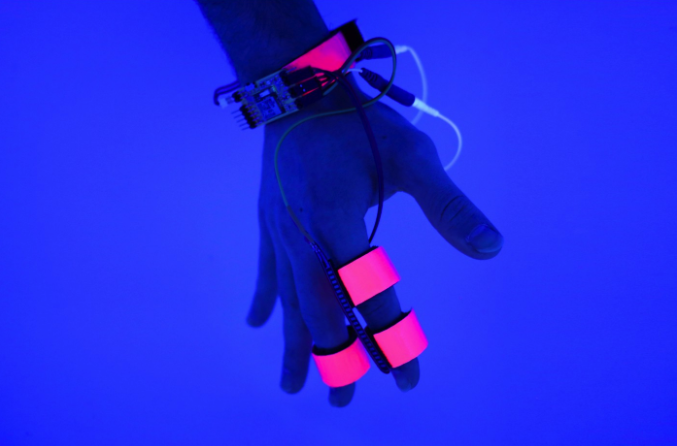Christopher Nolan's sci-fi blockbuster "Inception" first introduced us to the concept of dream-jacking technology but entering the subconscious during the dream state is now a reality thanks to a team of scientists at MIT.
A team of researchers at MIT's Dream Lab, which launched in 2017, are working on a wearable device that can not only track and interact with dreams but also give you control over what you want to see, feel or experience in your dreams, as pointed out by OneZero.
A device lets you use dreams to your benefit

The objective behind the device is to prove, once and for all, that dreams aren't just random thoughts that you have when you sleep and can be "hacked, augmented, and swayed" to your liking. Dream Lab researcher Adam Horowitz points out that the device will allow us, humans, to spend a third of our lives, which we otherwise spend sleeping, to our advantage - to better ourselves or improve our mood the next day.
"People don't know that a third of their life is a third where they could change or structure or better themselves," Horowitz says. "Whether you're talking about memory augmentation or creativity augmentation or improving mood the next day or improving test performance, there's all these things you can do at night that are practically important."
How does it work?

The glove-like device is called Dormio and is equipped with a number of sensors that can detect which sleeping state the wearer is in by monitoring muscle movements, heart rates, as well as the electrical conductance of the skin.
When the wearer slips into hypnagogia, the transitional state which we enter as we progress from being awake to sleeping, the glove plays a recorded audio cue, mostly comprising of a single word. Experiments conducted by Dream Lab have found that sounds play an influential role in our dreams so when the device played the word "tiger," for instance, participants went on to dream about the wild animal.
Trials have proved that the sounds influence our dreams. When the device played the word "tiger," for example, participants went on to dream of the feline. More intriguingly, the researchers found that the cues could improve the dreamer's performance in creative tasks. A similar Dream Lab wearable adds a sense of smell to the dream-jacking process, by releasing a fragrance that triggers a specific memory.
This concept isn't new, however, some of the world's most inspiring minds such as Thomas Edison, Nikola Tesla, and Salvador Dalí have all said to have taken naps with a steel ball in their hand in order to wake up in the hypnagogic state when the ball dropped to the ground. This "limbo" between the conscious and subconscious state, allowed them to explore the full extent of their creative minds.
Lucid dreaming
The researchers hope to use this technology to evoke a state in which sleepers can assume control of their dreams. A 2019 "Dream Engineering" workshop hosted by the Dream Lab discussed the endless possibilities of "lucid dreaming," a state in which people are fully aware that they're dreaming and gives them some amount of control over the dream, characters, narrative, and the environment.
"It's such an exhilarating feeling to lucid dream," Tore Nielsen, a professor of psychiatry at the University of Montreal said in an MIT blog post. "You can try flying, singing, having sex — it's better than VR."









